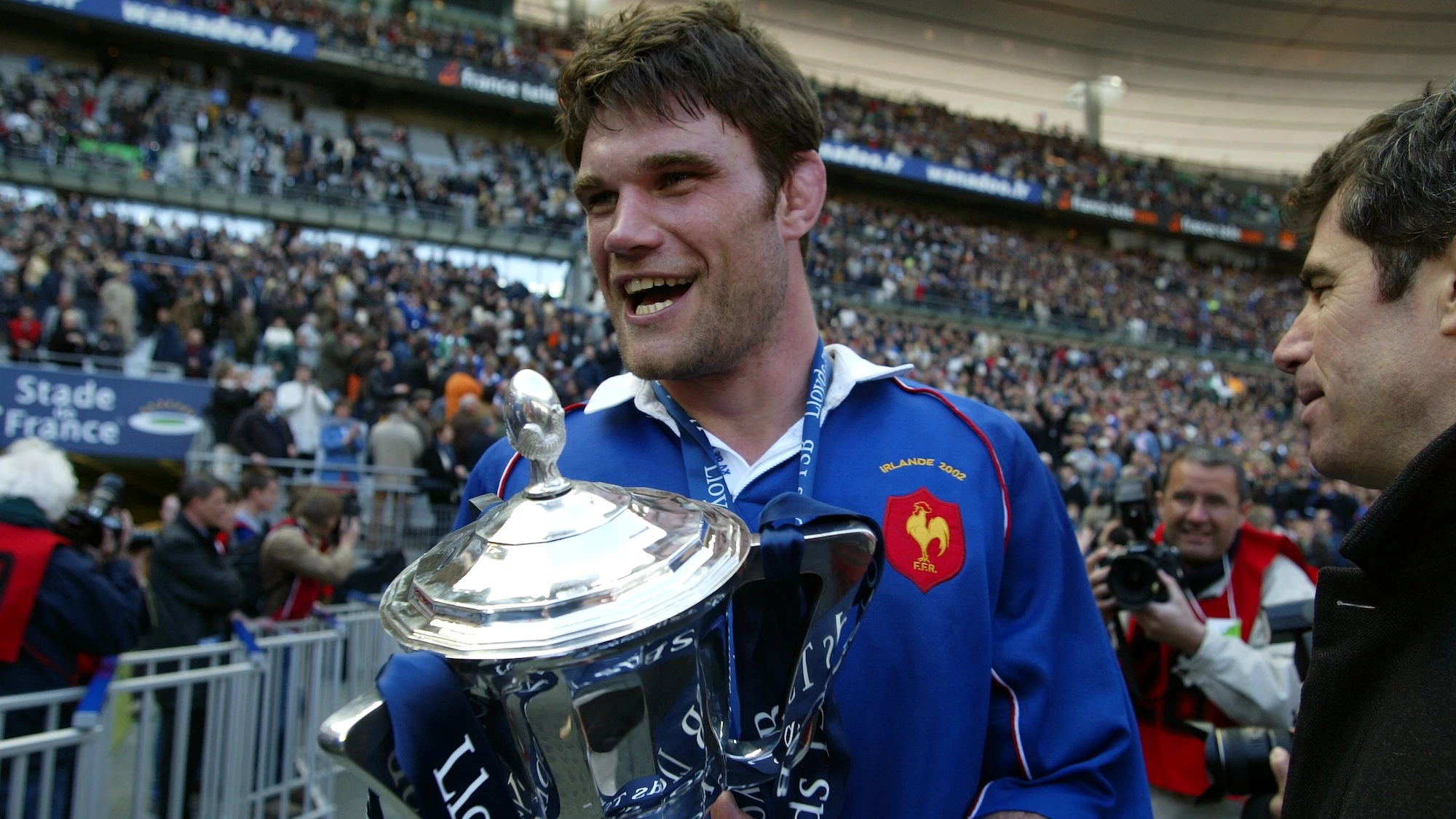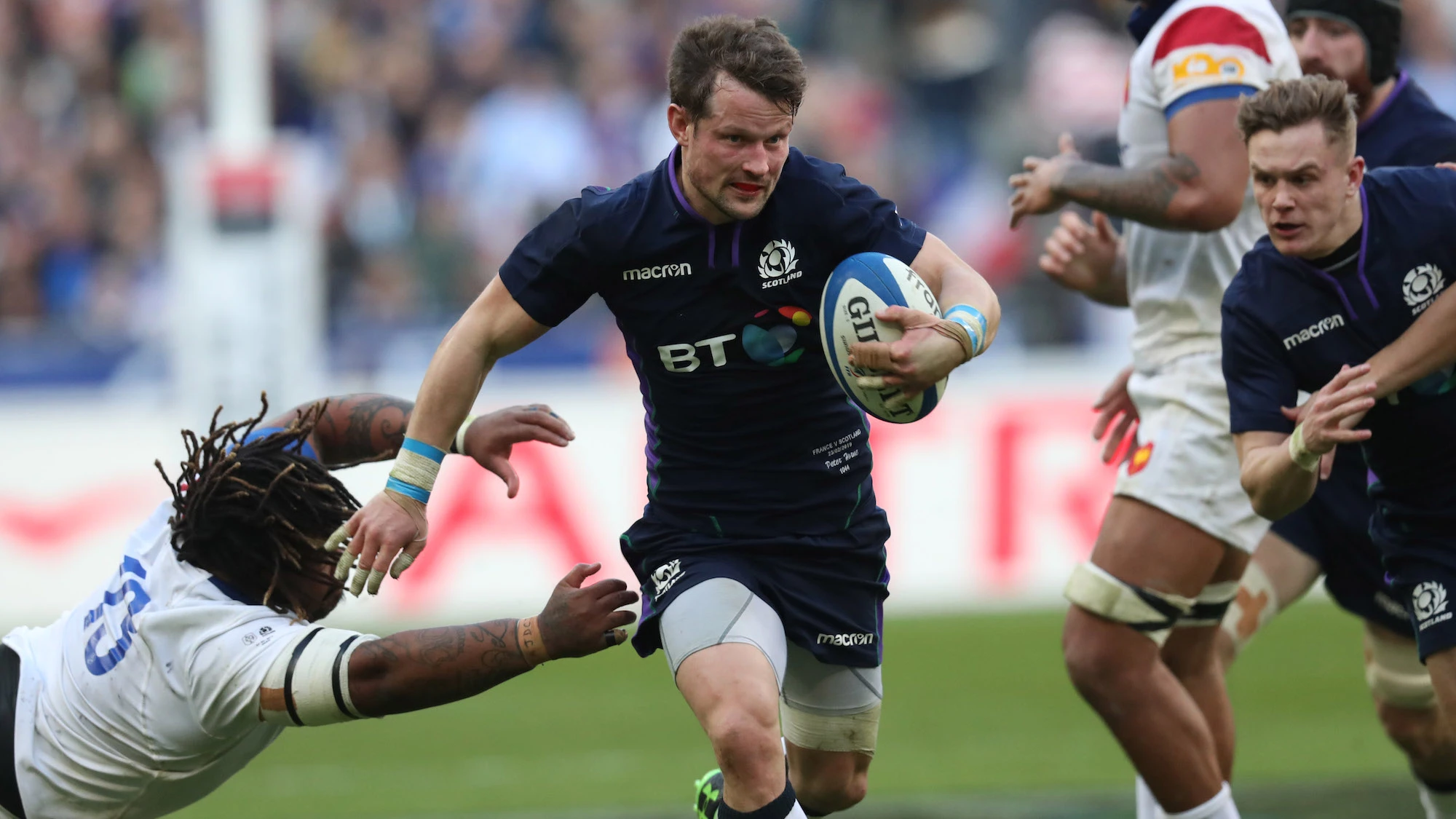Fabien Pelous will forever stand tall as an undeniable Six Nations giant.
A France immortal, the formidable second row scooped no fewer than five Championship crowns between 1997 and 2006 and racked up a mammoth 118 caps across a glittering career.
Pelous retired as international rugby’s most capped lock – a record now surpassed by South Africa’s Victor Matfield – and stormed to four Grand Slam titles in the process, striking fear into forwards far and wide with his unique combination of brains and brawn.
The former Toulouse star, who could also operate at flanker or No.8, possessed both prowess in the lineout and an imposing physical presence, with his remarkable success – and longevity – being rewarded with his induction into the World Rugby Hall of Fame in 2017.
Pelous retired from the international game in 2007 and having also enjoyed coaching roles in the France and Toulouse setups, has indelibly carved his name into the storied French rugby almanack.
To celebrate the Six Nations’ 20th anniversary, you can create your Greatest XV on the Guinness Six Nations app and choose from more than 150 players, including Graham Rowntree.
Pelous was born in 1973 and developed a deep affiliation with the outdoors from an early age.
He was the son of local farmers, who worked assiduously on the French land while Pelous plied his early rugby trade – after initially dabbling in football – in the commune of Saverdun.
Salubrious Saverdun is a 45-minute drive from the city Pelous would go on to make his early name but it was not until 1997, two years after his international debut, that Pelous joined European giants Toulouse.
He spent almost a decade at Saverdun before embarking on a four-year move to SC Graulhet, where his burgeoning stock continued to rise as he entered his 20s.
He joined US Dax in 1995 and by this point was emerging as one of the country’s brightest stars, earning international recognition as he started, and scored one of his eight France tries, in Les Bleus’ thumping 52-8 win over Romania in Tucuman that year.
A dozen more appearances – at both lock and No.8 – would follow but it was in the spring of 1997 where he would really make his mark, as Jean-Claude Skrela’s France stormed to a stunning Grand Slam triumph.
Pelous will never forget the Championships of 1997 and 1998. He started all four of France’s matches at No.8 in 1997 as Skrela’s team completed their maiden clean sweep for a decade, brushing past Scotland in Paris to clinch the coveted crown.
And nothing showcased his versatility quite like what unfolded the following year, as France emulated their flawless exploits with Pelous back in his more familiar position of second row.
The brilliant Pelous started all four of his team’s matches once more in 1998 and it was in London where they sealed their hegemony, swaggering down Wembley way to topple Wales 51-0 and make it back-to-back titles.
Pelous was rapidly emerging as an indispensable presence in the France scrum and while they failed to complete a hat-trick in 1999, the advent of the Six Nations epoch ushered in a further era of thrilling success.
Bernard Laporte succeeded Skrela in 1999 in what marked a watershed moment for French rugby.
Pelous had suffered World Cup final heartbreak that year as Les Bleus lost 35-12 to Australia but the new France boss immediately set about scooping more silverware, with the 2000 Championship his maiden assignment.
Laporte steered France to second place in 2000 and while they slumped to a fifth-place finish the following year, it was in 2002 when they, and Pelous, would become cream of the Championship crop once more.
Pelous completed his Championship hat-trick that year as France eased past all that came before them, with an emphatic 44-5 victory over Ireland sealing another Grand Slam in Paris.
France were pipped to the title by eventual World Cup winners England in 2003 – France reached the semi-finals in Australia – but with Pelous moving into his 30s at the end of that year, he was ready to assume a newfound leadership role under Laporte’s diligent auspices.
Pelous succeeded Fabien Galthie as France skipper prior to the 2004 Championship and embraced such seniority in style, engineering a fourth Grand Slam title in just eight years after memorable away wins in Cardiff and Edinburgh.
With all four Championship titles coming in Grand Slam form, Pelous was not messing around. He followed that up with a second-place finish in 2005 – Wales reigned supreme – but as the clock continued to tick towards the twilight of his career, was hellbent on bowing out in style.
And he made it a five-star Championship career in 2006, leading France to yet another title after battling back from an opening round defeat against Scotland to rule the roost once more.
One of Pelous’ few international regrets may be that he was unable to compete in the 2007 Championship – that France also won – owing to an ankle injury. However, he recovered in time for the World Cup that year as Les Bleus, once again, suffered semi-final heartbreak against England.
And that match at the Stade de France marked Pelous’ final one in an international jersey, retiring with a remarkable 118 caps – with 42 as captain – and a stunning five Championship triumphs.
A France giant of the Guinness Six Nations both physically and metaphorically, Pelous left an indelible mark on the Championship and will never be forgotten.



